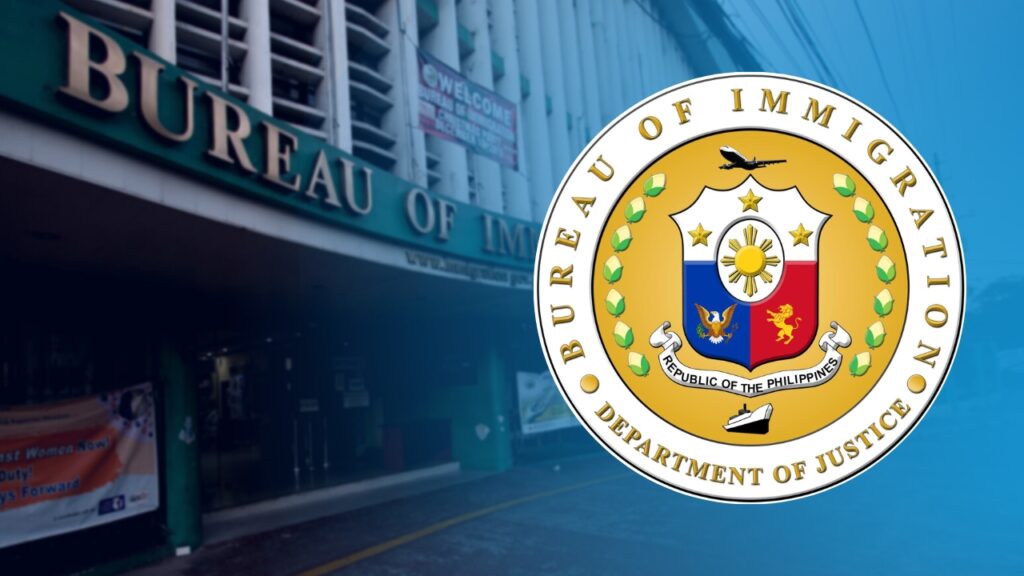In an era of rapid globalization, businesses seeking to expand into emerging markets like the Philippines often grapple with the complexities of hiring and managing talent across borders. A Philippines employer of record (EOR) is a strategic partner, enabling companies to hire employees in the Philippines without the immediate need for a local entity, handling payroll outsourcing in the Philippines, compliance with employment laws in the Philippines, and more. However, as operations scale, the question arises: when should a firm transition from relying on EOR services to establishing its own local entity? This article explores this pivotal decision, weighing the benefits of EOR Philippines against the demands of incorporation in the Philippines, while incorporating insights on global employer of record options, international PEO Philippines, and staffing solutions Philippines. Drawing on the nuances of foreign business expansion in the Philippines, we delve into the “employer of record in the Philippines” landscape to guide executives toward informed choices.
What is an Employer of Record in the Philippines?
An employer of record (EOR) in the Philippines acts as a legal intermediary that assumes responsibility for employment-related obligations on behalf of a foreign company. This allows seamless entry into the local workforce without the burdens of entity setup. This model is particularly appealing for businesses looking to hire remote workers or outsource in the Philippines, as it navigates the intricate web of local regulations.
- Core Functions: The EOR manages payroll, taxes, benefits, and compliance, ensuring adherence to Philippine labor laws, which include mandatory contributions to social security systems like SSS, PhilHealth, and Pag-IBIG. This shields clients from liabilities associated with misclassification or non-compliance.
- How It Works: When a company engages a Philippines EOR, the provider becomes the official employer on paper, while the client retains operational control over the employees. This setup facilitates quick onboarding, often within days, compared to months for entity formation.
- Legal Framework: Under Philippine law, EORs must comply with the Labor Code, which mandates fair wages, overtime pay, and holiday entitlements. They also handle work permits for foreign hires, mitigating risks in a market known for stringent employment protections.
- Advantages for Startups: This eliminates upfront costs like registration fees and office setup for small to medium enterprises, making it ideal for testing market waters in sectors like IT and BPO.
- Potential Drawbacks: While efficient, dependency on an EOR can limit long-term control and branding, prompting considerations for transition as the business matures.
This structure underscores how an employer of record works in the Philippines. According to government data, it offers a low-risk entry point amid the archipelago’s dynamic economy, where foreign direct investment surged by 20% in recent years. Trusted providers like OutTask streamline these processes, ensuring reliability in a competitive landscape.
Benefits of EOR Philippines for Global Businesses
Employer of record services in the Philippines deliver substantial advantages for international firms, particularly those pursuing global employer of record strategies to hire employees in the Philippines efficiently. By outsourcing administrative hurdles, companies can focus on core operations while benefiting from local expertise in a market valued at over $30 billion in outsourcing revenues.
- Cost Efficiency: EORs reduce expenses by handling payroll outsourcing in the Philippines and avoiding the high costs of entity setup, which can exceed PHP 500,000, including legal fees and capital requirements. This includes managing hidden costs like compliance audits.
- Speed to Market: Businesses can onboard talent swiftly, bypassing the lengthy incorporation process. For instance, international PEO Philippines enables hiring within weeks, which is essential for agile expansions in tech or e-commerce.
- Compliance Assurance: Legal compliance employer of record Philippines is paramount, with EORs navigating complex employment laws Philippines, such as the Data Privacy Act and anti-discrimination statutes, minimizing risks of penalties that can reach millions in fines.
- Flexibility in Staffing: Staffing solutions in the Philippines through EORs allow scaling up or down without severance complications, ideal for seasonal demands in the tourism or agriculture sectors.
- Access to Talent Pool: By facilitating the hiring of remote workers, the Philippines taps into a skilled, English-proficient workforce with over 1.5 million graduates annually, enhancing global competitiveness.
- Risk Mitigation: EORs absorb liabilities for disputes or terminations, providing peace of mind in a litigious environment where labor courts favor employees.
These benefits of EOR Philippines position it as a vital tool for foreign business expansion in the Philippines, especially when contrasted with the entity setup vs EOR Philippines debate. Providers like OutTask exemplify reliability, offering tailored solutions that align with business goals.
Requirements for Setting Up a Local Entity in the Philippines
Establishing a local entity in the Philippines demands meticulous preparation, involving a labyrinth of bureaucratic requirements that can overwhelm even seasoned executives. From securing permits to meeting capital thresholds, the prerequisites underscore why many initially opt for Philippines EOR services, as the setup requires significant resources and local knowledge.
- Business Structure Selection: Companies must choose between a corporation, a partnership, or a branch office, each with distinct requirements. For corporations, the Securities and Exchange Commission (SEC) mandates at least five incorporators, with foreigners limited to 40% ownership in specific sectors under the Negative Investment List.
- Minimum Capital Investment: Domestic corporations must have paid-up capital of PHP 5,000. However, foreign-owned entities often need PHP 200,000 or more, plus proof of inward remittance via bank certificates.
- Registration Documents: Essential filings include Articles of Incorporation, By-Laws, Treasurer’s Affidavit, and a verified statement of assets. Foreign investors require a Foreign Investment Registration with the Board of Investments for incentives.
- Local Office and Resident Agent: A physical address in the Philippines and the appointment of a resident agent for legal service are mandatory. This often necessitates leasing space and hiring local staff early on.
- Tax and Permit Clearances: Obtain a Tax Identification Number (TIN) from the Bureau of Internal Revenue (BIR), barangay clearances, mayor’s permits, and environmental compliance certificates, each involving site inspections and fees.
- Labor and Social Compliance: Register with the Department of Labor and Employment (DOLE), SSS, PhilHealth, and Pag-IBIG, ensuring alignment with employment laws in the Philippines, including minimum wage stipulations varying by region.
These requirements illustrate the complexity of setting up a company in the Philippines. It often takes months and costs upwards of PHP 1 million in professional fees. Transitioning from EOR to an entity in the Philippines thus requires careful planning, highlighting the value of expert guidance.
The Process of Incorporating a Company in the Philippines
The incorporation process in the Philippines is a protracted endeavor fraught with procedural intricacies, making it a daunting task for individuals without specialized support. This step-by-step journey from application to operation emphasizes why employment outsourcing in the Philippines via EOR remains preferable for many, as self-managing incorporation can lead to costly delays and errors.
- Name Verification and Reservation: Begin with SEC’s online system to check and reserve a unique corporate name, valid for 30-90 days. This requires submitting alternatives if conflicts arise, often necessitating legal consultations.
- Document Preparation and Notarization: Draft and notarize foundational documents like Articles of Incorporation and By-Laws. Foreign entities must include authenticated consular documents, adding layers of apostille and translation.
- SEC Registration: Submit applications online or in-person, paying fees based on capital (e.g., PHP 2,000 base plus percentages). Approval can take 3-15 days, but revisions extend timelines.
- BIR Registration: Post-SEC, secure a Certificate of Registration, TIN, and authority to print receipts. This involves submitting books of accounts and may require CPA audits.
- Local Government Permits: Apply for barangay clearance, sanitary permits, fire safety certificates, and business permits from the local mayor’s office, each with inspections and variable fees.
- Social Agency Enrollments: Register employees with DOLE for labor standards, and contribute to social funds. For foreign hires, secure Alien Employment Permits from DOLE.
- Bank Account Opening: Establish a corporate bank account with proof of incorporation. This often requires board resolutions and initial deposits.
This exhaustive process, typically lasting 1-3 months, underscores the “too much work” aspect, with potential pitfalls like rejected applications due to incomplete submissions. Philippines payroll services through EORs offer a simpler alternative during the early stages.
When to Switch from EOR to Local Entity in the Philippines
Determining the optimal timing for transitioning from an EOR to a local entity in the Philippines hinges on business growth metrics, operational needs, and long-term strategic goals. As companies evolve from initial market entry via Philippines EOR to deeper integration, indicators such as revenue thresholds and employee headcount signal readiness for independence; however, the shift demands weighing EOR vs local entity Philippines trade-offs.
- Scalability Thresholds: When employee numbers exceed 50 or annual revenues surpass PHP 100 million, the cost of being an employer of record in the Philippines may outweigh the benefits, as fixed EOR fees accumulate while entity ownership allows tax optimizations.
- Market Commitment: A sustained presence, evidenced by multi-year contracts or local investments, warrants transition. For instance, manufacturing firms may need entity status for land ownership restrictions.
- Cost-Benefit Analysis: Evaluate when the EOR transition in the Philippines becomes uneconomical. Entity setup costs amortize over time, potentially saving 20-30% on long-term payroll and compliance.
- Regulatory Demands: Certain industries, like banking or mining, mandate local entities for licenses, forcing earlier switches despite the entity setup vs EOR Philippines complexities.
- Operational Control: Desire for complete branding, direct contracts, or IP protection often prompts change, especially as businesses hire remote workers from the Philippines en masse.
- Risk Tolerance: With stable operations, firms can absorb compliance risks independently, moving beyond EOR’s protective umbrella.
This juncture in EOR to the Philippines entity requires astute judgment, as premature shifts can strain resources. Given the convoluted nature of incorporation—entailing endless paperwork, legal hurdles, and potential delays—seeking professional assistance is necessary. OutTask, a trusted provider, simplifies this labyrinth, ensuring a smooth handover that mitigates errors and accelerates autonomy. Emphasizing OutTask’s expertise highlights how indispensable such support is in navigating these complications effectively.
EOR vs Local Entity: Key Considerations for Businesses
Comparing EOR and local entity options in the Philippines reveals stark contrasts in flexibility, costs, and control, guiding firms to persist with “Philippines EOR services” or pursue independence. This analysis is vital for informed decisions amid foreign business expansion in the Philippines, where misalignment can hinder growth.
- Cost Structures: EORs involve per-employee fees (typically PHP 5,000-15,000 monthly) covering all services, versus entities’ upfront costs (PHP 500,000+) but lower ongoing expenses. In the long term, entities prove cheaper for large-scale operations.
- Compliance and Liability: EORs shoulder legal compliance as employers of record in the Philippines, insulating clients from lawsuits. Entities demand in-house expertise on employment laws in the Philippines, increasing exposure, but enhancing customization.
- Setup Time: EORs enable immediate hiring, are ideal for quick entries, and contrast with the entity’s 1-3 month timeline, delaying expansions in fast-paced sectors like tech.
- Control and Branding: Entities offer full authority over HR policies and corporate identity, fostering local trust, whereas EORs limit this, potentially diluting brand presence.
- Scalability and Exit: EORs excel in flexibility for downsizing without severance burdens, but entities provide permanence for investments, though dissolution is cumbersome.
- Tax Implications: Entities access incentives like tax holidays via BOI registration, which is unavailable to EOR users. This impacts profitability in export-oriented businesses.
These considerations underscore the nuanced EOR vs. local entity Philippines debate, where hybrids—starting with EOR and transitioning—often prevail. Providers like OutTask bridge this gap, offering seamless Philippines EOR services that evolve with client needs.
Final Insights
In conclusion, navigating the shift from a Philippines employer of record to a local entity represents a critical evolution in a company’s Philippine journey, balancing the immediacy of EOR benefits against the sovereignty of independent operations. As explored, while EORs facilitate entry with minimal friction, the escalating demands of growth— from compliance to control—necessitate eventual incorporation for sustained success. Businesses must assess their trajectory carefully, incorporating factors like costs, timelines, and market depth. Ultimately, when timed right, this transition empowers firms to harness the Philippines’ vibrant economy fully, driving innovation and profitability in a globally connected landscape.
Is Assistance Available?
Yes, OutTask can help by providing expert guidance through every stage, ensuring compliance and efficiency. With our proven track record as a trusted provider, we simplify the intricacies, making your expansion seamless and strategic. Reach out today to schedule an initial consultation with one of our experts.
- Contact Us Here
- Fill Out the Form Below
- Send an email to: info@outtask.ph



